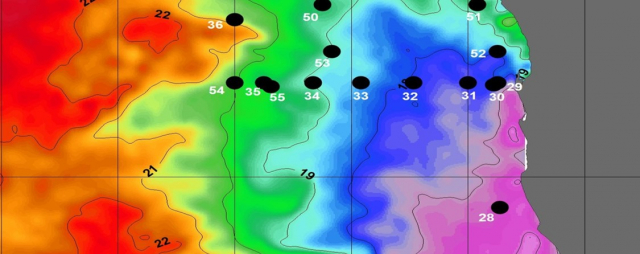Oxygen and temperature are crucial environmental conditions influencing the spatial distribution of marine organisms. In respect to future climate change, expected shifts of species’ spatial distributions in relation to temperature have been documented. These, though, largely ignore the combinatory effect of rising metabolic demand for oxygen and diminished oxygen concentration in the water.
In our study we use a combination of metabolic demand derived from experimental data and empirical and modelled oxygen concentrations to analyse potentially viable habitats for key species of the Benguela Upwelling System (BUS).
Based on temperature and oxygen concentrations from Regional Ocean Models we project potential species distributions in the BUS into the future and quantify the habitable volume and its geographic shifts. The BUS is an ideal test bed for our study since it can be divided into a northern part containing a strong oxygen minimum zone and a southern area with only occasional oxygen minima.
The results will deliver insights for sophisticated regional species distribution modelling and future management options. With the calculation of the metabolic index and thus the organisms’ demand for oxygen we will be able to calculate the critical oxygen zone outside the Oxygen Minimum Zone (OMZ) and model the vertical and horizontal limits to the species’ distributions. It will allow us to identify causes of past shifts in species distributions and productivities and allows making future predictions based on IPCC climate scenarios.
Project Partners |
|---|
|
Dr. Margit Wilhelms, University of Namibia Dr. Lynne Shannon, University of Cape Town |





